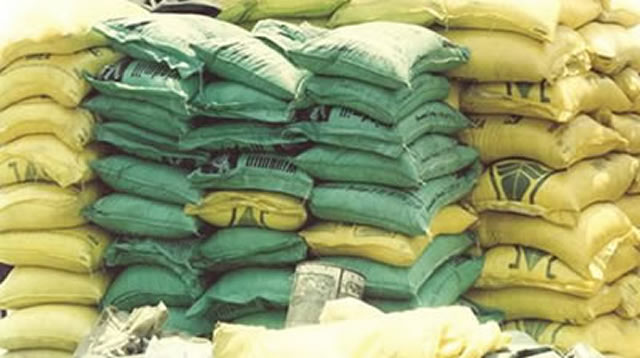Fertiliser prices to go down 20pc


Elita Chikwati Agriculture Reporter—
Zimbabwe’s crop production is poised for a major rebound in the wake of an impending 20 percent cut in the cost of fertiliser. If implemented, the price reduction would see a 50kg bag of fertiliser which is selling at $38, coming down to $30. While that price remains high compared to prices in the region, it would be a good starting point for most farmers.
Fertiliser industry spokesman Mr Misheck Kachere yesterday attributed the price reduction to increased capacity utilisation from last year’s 30 percent to 80 percent this year after local and foreign interventions.
Mr Kachere said farmers can expect to start feeling the price reduction by the end of this month.
“The industry ran at 30 percent last year, but this has increased to 80 percent. As we increase the capacity, unit production costs will go down with the same people and resources and we will produce more. As we move into the season we will see the decline in prices.
Also Read:
“When we get to 80 percent, we should see a 20 percent reduction in fertiliser prices in Zimbabwe. We have established a working capital of local facilities of $80 million and consignments stock collateral management agreement of $40 million worth of arrangements.
“We will be working hard to achieve this. Our business is on farmers and if they are viable, we will also be viable.
“We want to play our part in terms of Zim-Asset, value addition and beneficiation,” he said.
Mr Kachere recalled a maize revolution, which happened soon after independence with the support of local fertiliser companies and said this was likely to repeat itself.
He said Zimbabwe had always had competitive prices of fertiliser considering the nutritional components.
He said some farmers were comparing the resources with the regional counterparts, but said some of the prices in other countries such as Malawi were highly subsidised.
“Our compound fertilizers are designed to suit our soils. Our soils require sulphur and calcium. Some of the importers do not know anything on this while others just order on online. This compromises yields as farmers end up using wrong fertilizers.
“Our local fertilizers are cheaper than all regional counterparts except South Africa that has huge manufacturing plants. Prices of our fertilizers are competitive because of the existence of a local manufacturing industry,” he said.
“Farmers should be careful when using imported fertilizers otherwise they will end up using the wrong types and this will negatively impact on their yields. In most cases, the imported fertilizers will have deficiencies,” he said.
Mr Kachere said the fertilizer industry had the capacity to produce one million tonnes’ of fertilizer per year, but the maximum it produced was 600 000 tonnes in 1999.
“We have a programme to recapitalise the industry. We have established a working capital of $120 million from local facilities and consignment stock collateral,” he said.
Zimbabwe Farmers Union director, Mr Paul Zakariya, said the move taken by the fertilizer industry was positive as the sector had responded to their calls.
“This makes sense. We welcome anything that reduces production costs. Farmers are not competitive with prices which are always skyrocketing.
“We also believe they can go further down. We need to further interrogate their costs. The fertilizer industry has been facing challenges of electricity charges. This should be addressed so production costs remain cheap. The whole economy should be re- adjusted. Zinwa should also deal with the water costs to lower production costs,” he said.
Zimbabwe Indigenous Women Farmers Association, Mrs Depinah Nkomo, applauded the fertilizer industry and said it showed concern for farmers.
“This is a positive move considering that we have always been calling on Government to intervene in terms of inputs prices especially fertilizers.
“This will reduce production costs and increase viability. I hope all other inputs suppliers will follow this,” she said.











Comments